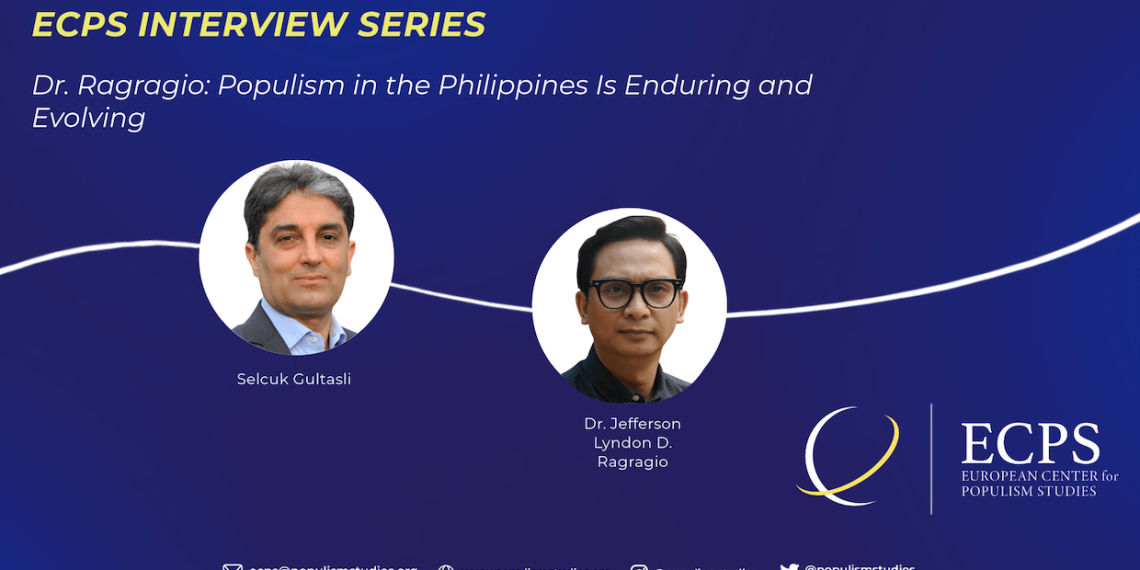In this thought-provoking conversation, Dr. Jefferson Lyndon D. Ragragio—Gosling-Lim Postdoctoral Fellow at the University of Michigan—discusses the resilience and transformation of populism in the Philippines. He explores how symbolic narratives of “pro-people, anti-elite” sentiment continue to drive support for dynastic figures like the Dutertes, despite mounting legal scrutiny. From social media toxicity to youth electoral shifts, Dr. Ragragio argues that populism is “here to stay,” shaped by local patronage networks and reinforced by mediatized political performance. He also highlights the importance of civic education and independent journalism as counterforces. This is a timely, incisive analysis of a political culture in flux.
Interview by Selcuk Gultasli
In this wide-ranging and incisive interview with the European Center for PopulismStudies (ECPS), Dr. Jefferson Lyndon D. Ragragio—Gosling-Lim Postdoctoral Fellow in Southeast Asian Studies at the University of Michigan—offers a sobering yet nuanced analysis of the enduring logic of populism in Philippine politics. With a research focus on media, democracy, and political communication in Southeast Asia, Dr. Ragragio traces how populist discourse and dynastic power have remained mutually reinforcing features of the Filipino political landscape.
“Populism in the Philippines is here to stay,” he affirms, stressing that whether “right-wing, illiberal, or left-wing-oriented,” such formations continue to thrive due to “an enduring clamor for pro-people, anti-elite sentiments” across both national and local arenas. This durability, Dr. Ragragio argues, is not merely rhetorical but structural, anchored in long-standing regional patronage networks and a media ecosystem conducive to symbolic politics.
Reflecting on the Duterte family’s electoral resurgence amid legal controversies—including former President Rodrigo Duterte’s detention at the ICC and Vice President Sara Duterte’s looming impeachment—Dr. Ragragio interprets this revival not simply as continuity, but as a strategic “recalibration of expressions of support” rooted in the “symbolic resilience” of populist narratives. Despite mounting legal and institutional scrutiny, he observes that “support can be sustained, especially at the local level,” even as national opposition gains ground.
Equally compelling is his analysis of political journalism as a contested discursive terrain. “Political journalism has long been a battleground,” Dr. Ragragio notes, shaped by both populist co-optation and democratic resistance. He commends outlets like Rappler and regional campus journalists for expanding critical coverage during the midterm elections, while also warning of the toxic political performance encouraged by algorithmic propaganda on platforms like Facebook.
Crucially, Dr. Ragragio identifies media literacy, civic education, and institutional accountability as key interventions in combating “authoritarian masculinity and political exceptionalism.” Yet he remains realistic about the persistence of dynastic dominance, noting that “a third of the Senate is composed of familial pairs.”
Ultimately, his insights reveal a landscape in flux—where democratic recalibration and populist entrenchment coexist in uneasy tension, and where the future of Philippine democracy hinges on how these competing narratives are mediated, institutionalized, and resisted from below.


